Quickest Kosher Dills - or Dilly Beans or Pickled Carrots or...
It has been a long time since I posted. The best intentions have been left behind in a pile of sandy, wet beach towels and swimming costumes and in discarded tennis rackets (not mine) and ankle twisting balls. They are buried under a stack of art camp projects, library books (always very stressful if it is about to be returned unread) and six-paper drawings. They are left in the dust of learning to ride a bike between the rain showers and in trying to cram four months of catching up and memory making experiences into four short weeks of Daddy home time. The recipes and my barely used camera will sit and wait, my children do not. EVER.
I should say that those intentions have also fallen to the odd bit of real work, picnic preparation and to my late summer canning and preserving drive. My husband worries about space and shelf stability. I worry about what we will do if we run out of dill pickles in March. He reliably reminds me that there is a supermarket we can walk to in less than five minutes. I tell him it isn’t the same, he doesn’t understand. He says we don’t eat jam. I say it is to give as gifts. He asks how much money do you spend on jars. I tell him the lady I met at Canadian Tire gave me hundreds. He rolls his eyes. I know he knows I will not relent.
I am not going to bore you with telling you about everything I have made. I will tell you once again that if you can just eek out a few hours to put something up, you will be very happy you did. There is still plenty of lush inspiration - blueberries, tomatoes, plums, pears and apples.
Last year’s pickles did not work out very well. In fact, most of them wound up composted. I am not sure what I did or didn’t do but they weren’t for eating. This year, I wasn’t even going to bother making any. I then thought about making fermented ones but realized that I would actually have to remember that they were fermenting. Then, in my new carry-it-around-all-the-time favourite guide, I found a recipe for Quickest Kosher Dills and knew I would be making pickles after all.
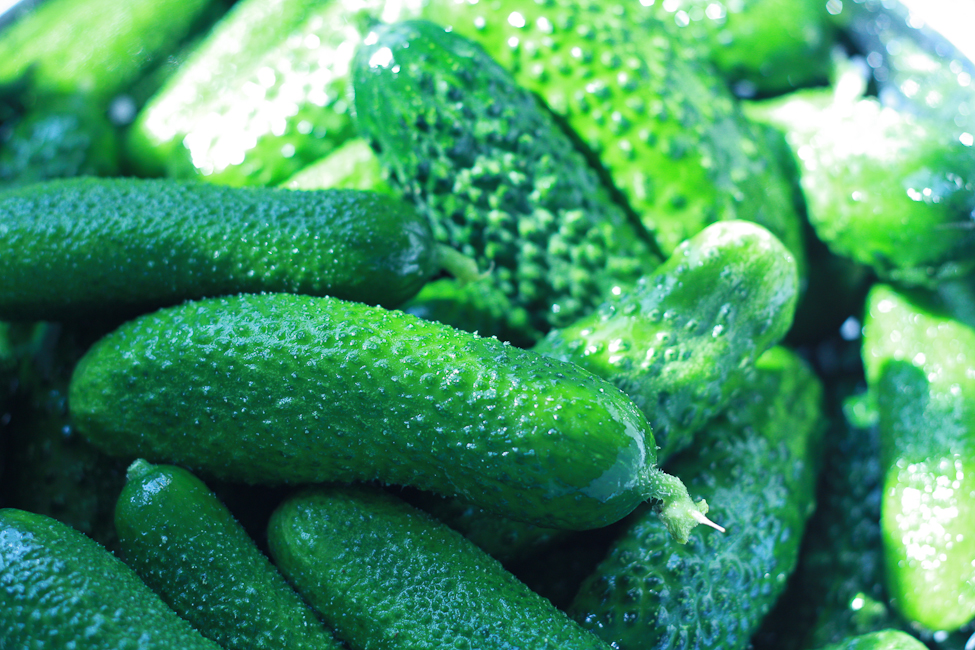
This recipe can be used for carrots and beans as well. With carrots, you can keep the spices pretty much the same. For beans, I would be inclined to make them a little spicier. I used fresh dill which is great especially if you can find some with big flowering heads just going to seed. You can also use the fresh feathery fronds, stalks and you can use dried dill seed as well. The original recipe calls for scuttermong or grape leaves which keeps pickles crisper apparently. Had my children not been in bed I may have asked my friend Nicki if I could nip over and snip a few leaves off her vines but I can not imagine how crisp a pickle would need to be to warrant disturbing that divine post-bedtime peace. So, I left it out and, although I have never used it before, I expect my pickles will be just fine.
The math is pretty simple here and, in order to change from pints to quarts(which you may want to use if you are making carrots), you may need to adjust your quantities, You will need about one cup of liquid for every pint, so that is two cups for every quart. This recipe will make enough for ten pints or five quarts.
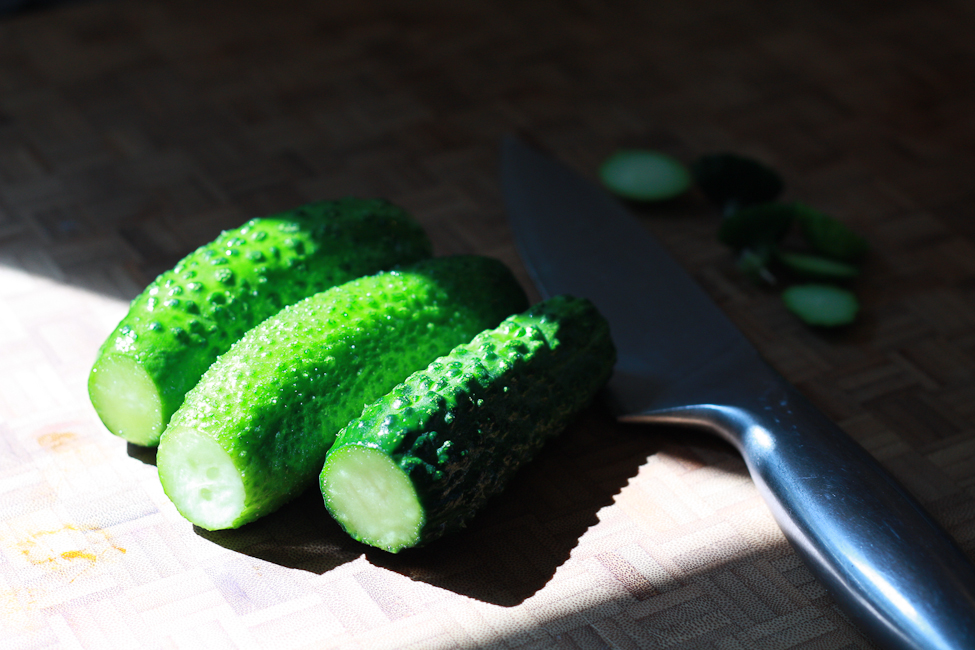
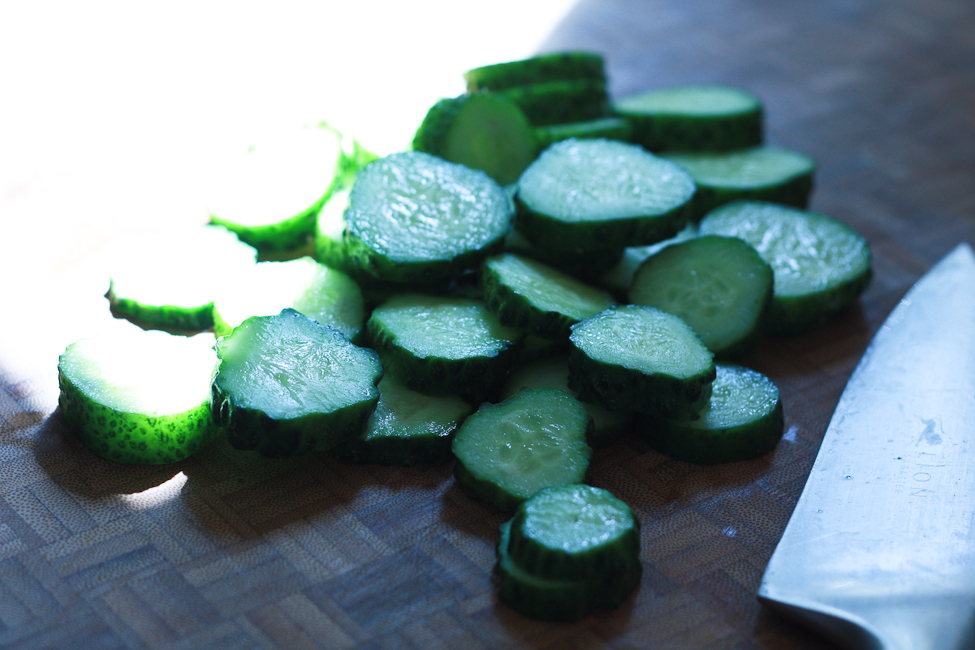
If you are making dill pickles, please use pickling cucumbers. The flavour and texture is much better than other cucumbers. How you slice them is up to you. I like small ones if I am leaving them whole and mediumish (3-inch) ones if I am slicing or quartering. If you are quartering, I suggest you use quart jars instead of pints. For carrots, if you have large ones you can just peel and slice them into quarters, sixths or eighths lengthwise and trim them to be long enough to sit just at the shoulders of the quart jar. Beans do well in a pint jar and again, topped to sit just at the shoulders.
Quickest Kosher Dills adapted from Canning for a New Generation by Liana Krissof
(makes 10 pints or 5 quarts)
2.5 kg (5lb 8oz.) pickling cucumbers(as I mentioned above, I like using +/- 3-inch ones)
5 cups natural white vinegar
5 cups water
4 1/2 tablespoons kosher salt
10 teaspoons pickling spice
10 cloves garlic
Fresh dill
Clean 10 pint or 5 quart canning jars.
Rinse cucumbers in cold water. Remove the blossom end if you are quartering, remove both ends if you are slicing. Quarter or slice the cucumbers 1/4-inch thick.
Meanwhile heat your jars in a hot water bath.
Bring the vinegar, water and salt to a boil for five minutes, cover to avoid too much evaporation.
Put the lids in a bowl and pour some water from the hot water bath over them.
Carefully remove the jars from the hot water bath and, working quickly, put a teaspoon of pickling spice, a clove of garlic and a sprig of dill in the bottom of each jar. Pack the cucumber quarters or slices tightly.
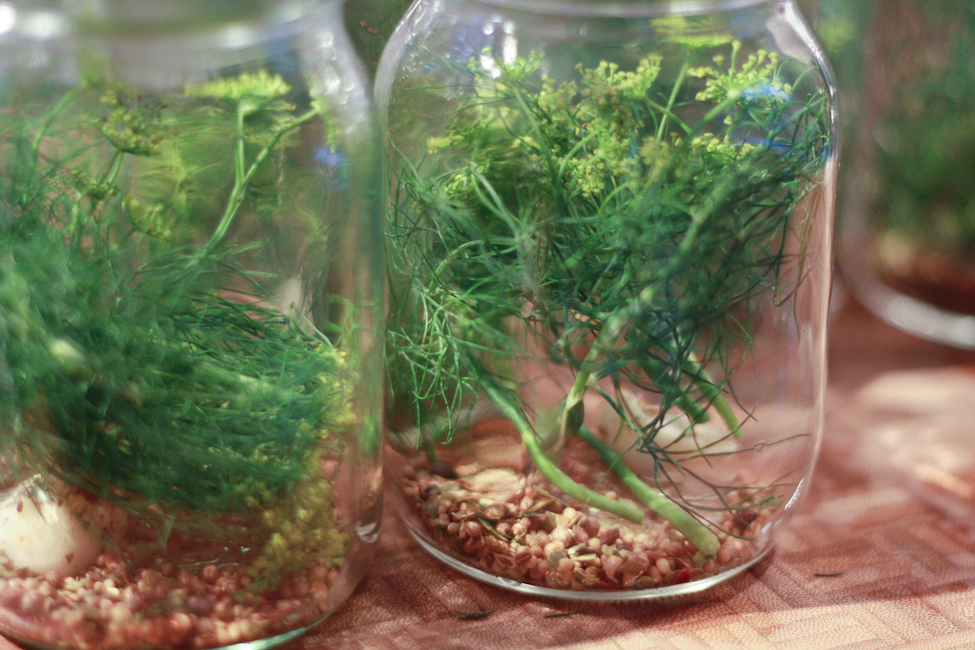
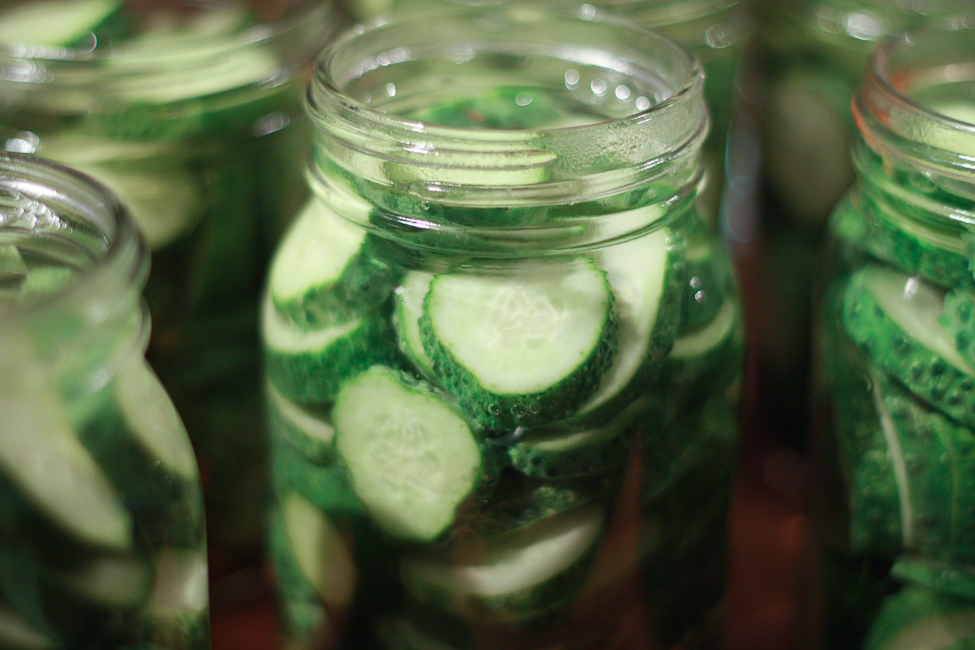
Pour the hot vinegar mixture into the packed jars leaving 1/2-inch headspace. Wipe the rims and put the lids on. Screw on the rings until they are just finer tight.
Return the jars to the hot water bath, where they should be covered by one inch of water. Bring to a boil. Boil for ten minutes.
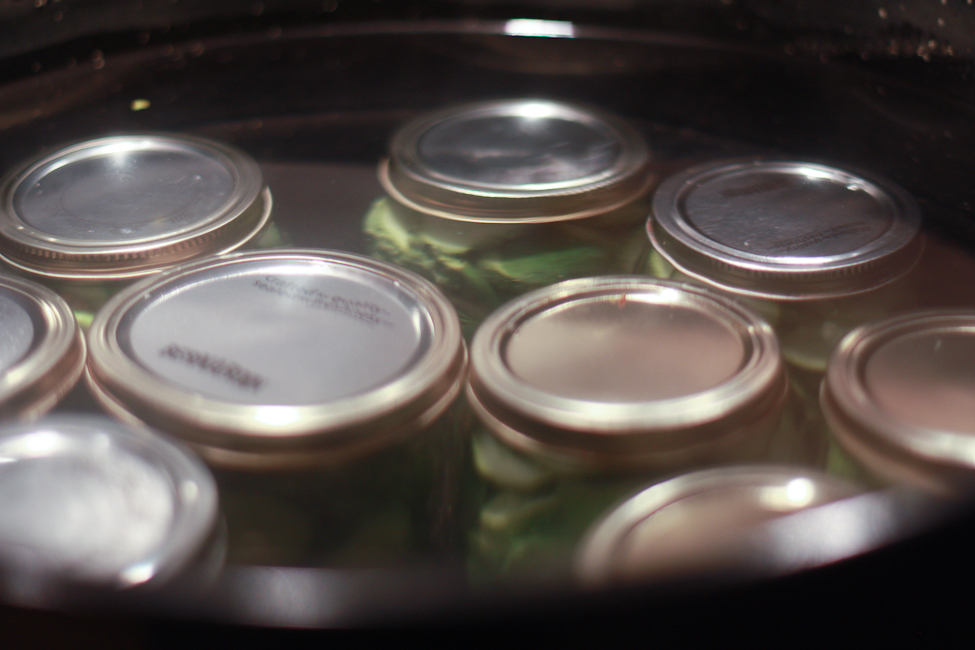
Remove the jars to a towel and leave for 12 hours. Check after an hour or two and if any jars haven’t sealed (if you can still press the lid down), put them in the fridge immediately.
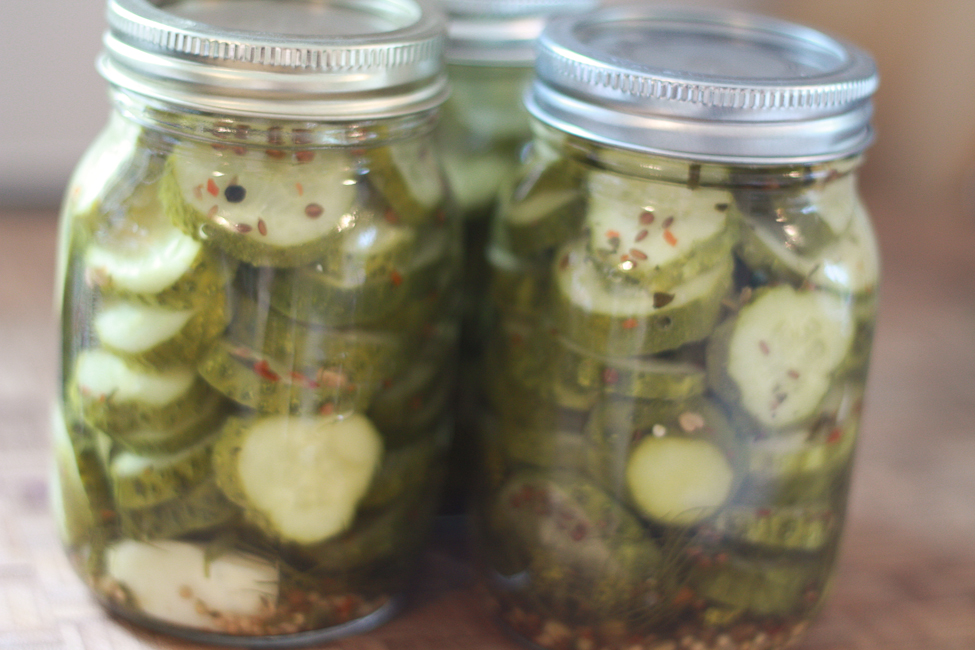
 Tuesday, September 6, 2011 | in
Tuesday, September 6, 2011 | in  A Little Nibble,
A Little Nibble,  Comfort Food,
Comfort Food,  Preserves,
Preserves,  Vegetarian | tagged
Vegetarian | tagged  Canning,
Canning,  Dill,
Dill,  Pickles |
Pickles |  Post a Comment |
Post a Comment | 
Reader Comments